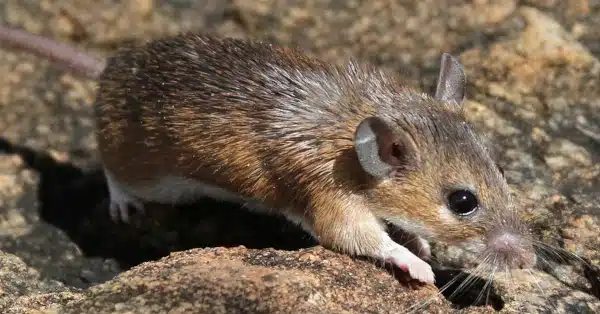Growing up in the 80’s, I enjoyed Saturday morning cartoons. One of these cartoon, Alvin and the Chipmunks, stared three talking and singing chipmunks, adopted by a constantly tormented bachelor. Today, real chipmunks about in our woods, parks and yards. These small rodents are interesting in their own right. Let’s explore some facts about chipmunks.
Chipmunks are small squirrels that have adapted to burrowing underground. These small creatures are cute, fuzzy and often have lively personalities. If you don’t believe me, spend some time feeding them in your local park. Of course, sometimes they find their way into places that they shouldn’t be, but most of the time they are a pleasant part of our ecosystem.
CHIPMUNKS ARE AVID TALKERS
Chipmunks communicate with each other. Kenneth Schmidt, a biologist at Texas Tech University has found that chipmunks predominately use three different calls when talking to one another. A chip trill is made while a chipmunk is running as is used to let another chipmunk know that they are in their territory. Chucking is done from a stationary position and lets other chipmunks know that there is an aerial predator. Chipping is also done while standing still to let other chipmunks know that there is a danger from a ground predator.
Chipmunks also listen to the alarms of other animals. The wood chuck, for example, will make a high pitched whistling sound. Chipmunks will seek cover when they hear this. They usually respond to high pitched sounds and seek cover, because this is the common sound used for alarm across the animal kingdom. Listen to chipmunk calls here:
THEY ARE LONERS
Chipmunks tend to isolate themselves. They are burrowers and definitely have a particular territory that they will protect. Chipmunks will fight for territory and mating rights. Food supplies are regulated by spreading out their territory, and only allowing one chipmunk per area. If you need help removing any pest, call a local Tulsa pest control company.
The males will leave their territory during the two mating seasons. Those seasons fall in late spring and early fall. The males will search for a female and then fight other males for her. Once he wins, they will mate, and he goes back to his original territory. She will raise the three to five young. This usually takes around eight weeks.
HIBERNATING
Chipmunks have a unique way of hibernating. They will go into their burrows, fall asleep, but wake every few days. When they wake up, they will eat from the stash that they have gotten over the summer months, and then urinate and defecate. When they get to their sleep phase, their heart rate drops from 350 beats per minute to as low as 4 beats per minute. Their body temperature drops to as low as the burrow, sometimes into the forties. Removal can be done by an Oklahoma exterminator.
Scientists are doing studies today that are revealing new information about chipmunks. Global warming is effecting their hibernating habits. Many chipmunks are hibernating less over the winter, and some are not at all, depending upon how warm their environment gets.
BURROWERS
These small rodents are active burrowers. Their burrows can be as long as 20 feet. Their burrows have to be large to accommodate enough food stores to last them through the winter. They are also avid climbers, climbing trees, shrubs and bird feeders.
Chipmunks have two types of burrows. They will use shallow burrows to use as protection if they are found by a predator while searching for food. They also have a deeper one for food storage, raising their young, and hibernation. They will rarely venture more than 1/3 of a mile from their main burrow. Contact your Tulsa exterminator today.
THEY EAT
The average chipmunk can gather up to 165 acorns a day. They are omnivores that can eat either plants or animals. They will eat nuts, seeds, fruit, insects, baby birds and baby mice. But their primary source of food is nuts and seeds. These also make up the most of their food stores for the winter. They don’t really hunt for nesting eggs and mice, but will only eat them if they come across them. Many ground nesting birds will avoid places where they here chipmunk calls to protect their young.
DEALING WITH CHIPMUNKS
Sometimes chipmunks find their way into places that they shouldn’t be. In these cases, it’s important to remove them as soon as possible. If you are having an issue with these rodents, contact an Oklahoma pest control company. Here at TermMax Pest Control, we can get you a free estimate. We’re here to help!


